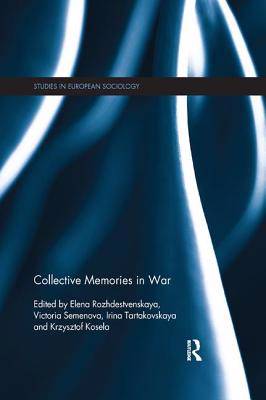
- Retrait gratuit dans votre magasin Club
- 7.000.000 titres dans notre catalogue
- Payer en toute sécurité
- Toujours un magasin près de chez vous
- Retrait gratuit dans votre magasin Club
- 7.000.0000 titres dans notre catalogue
- Payer en toute sécurité
- Toujours un magasin près de chez vous
Collective Memories in War
Description
This edited collection offers an empirical exploration of social memory in the context of politics, war, identity and culture. With a substantive focus on Eastern Europe, it employs the methodologies of visual studies, content and discourse analysis, in-depth interviews and surveys to substantiate how memory narratives are composed and rewritten in changing ideological and political contexts. The book examines various historical events, including the Russian-Afghan war of 1979-89 and World War II, and considers public and local rituals, monuments and museums, textbook accounts, gender and the body. As such it provides a rich picture of post-socialist memory construction and function based in interdisciplinary memory studies.
Spécifications
Parties prenantes
- Editeur:
Contenu
- Nombre de pages :
- 212
- Langue:
- Anglais
- Collection :
Caractéristiques
- EAN:
- 9781138390942
- Date de parution :
- 10-09-18
- Format:
- Livre broché
- Format numérique:
- Trade paperback (VS)
- Dimensions :
- 156 mm x 234 mm
- Poids :
- 303 g

Les avis
Nous publions uniquement les avis qui respectent les conditions requises. Consultez nos conditions pour les avis.





